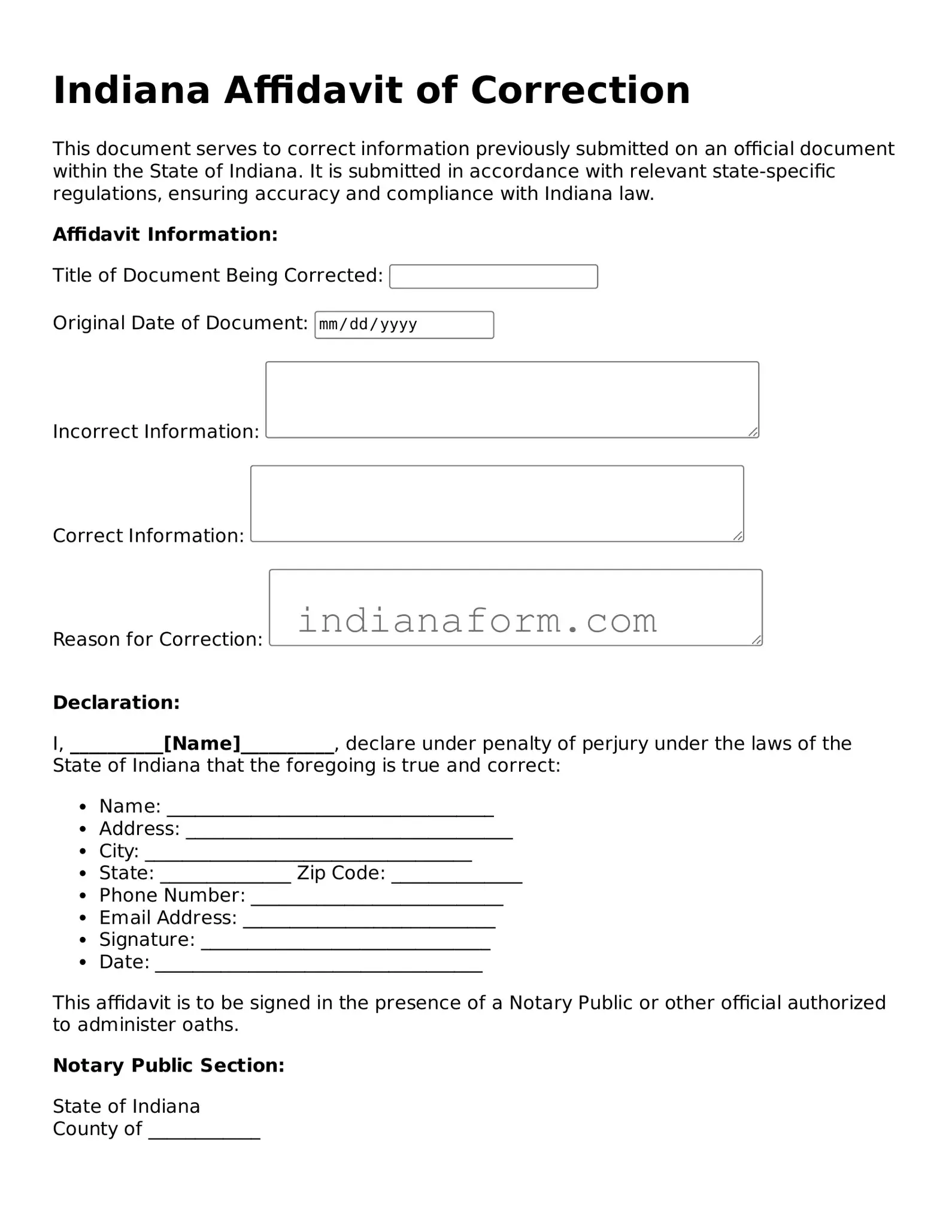What is the Indiana Affidavit of Correction?
The Indiana Affidavit of Correction is a legal document used to correct errors or inaccuracies on official state documents related to vehicle titles, registrations, and other similar documents. It ensures that recorded information reflects accurate details.
When should I use the Indiana Affidavit of Correction?
This form should be used whenever an error is discovered on official documents that require correction. Common instances include misspelled names, incorrect vehicle identification numbers, or errors in the make/model/year of a vehicle on a title or registration.
Who can file an Indiana Affidavit of Correction?
Individuals or entities who are directly affected by the error on the official document are eligible to file the affidavit. This includes vehicle owners, lienholders, or legal representatives who have identified inaccuracies needing correction.
What information do I need to include in the form?
The form requires detailed information about the error, including the document number of the incorrect record, a description of the mistake, and the correct information. Additionally, the filer must provide their personal information, sign the affidavit, and sometimes get it notarized.
Is notarization required for the Indiana Affidavit of Correction?
Notarization requirements can vary. While some corrections may necessitate a notarized affidavit to ensure the authenticity of the signature, others may not. It's advisable to check the specific requirements based on the type of document being corrected.
Where should I submit the completed form?
The completed form should be submitted to the Indiana Bureau of Motor Vehicles (BMV) or the specific agency that issued the original document. It's important to confirm the submission location, as it may vary depending on the document in question.
How long does it take for the correction to be processed?
Processing times can vary depending on the complexity of the correction and the volume of requests the agency is handling. Typically, it may take several weeks. It’s recommended to follow up with the agency if you haven't received a response within a reasonable timeframe.
Is there a fee associated with filing an Indiana Affidavit of Correction?
In most cases, there is no fee to file an affidavit of correction. However, if the correction requires the issuance of a new document, such as a revised title, a fee may be charged. It's best to check with the specific agency for any applicable fees.
Can errors on any Indiana state document be corrected with this affidavit?
While the affidavit is commonly used for vehicle-related documents, its applicability can extend to other state documents that contain errors. It's crucial to consult with the issuing agency to confirm whether the Affidavit of Correction is the appropriate form for your needs.

